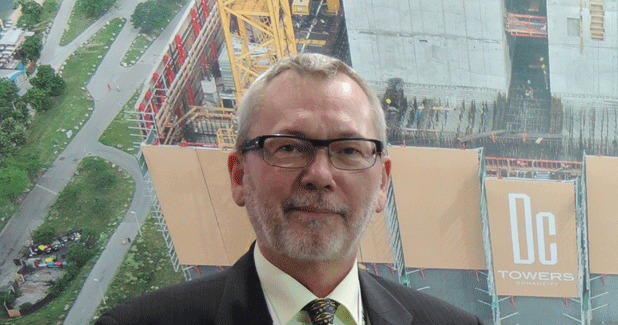

- Jurgen Gnida, Project Manager - Key Projects, Peri GmbH Formwork Scaffolding Engineering
PERI was founded in 1969 and for years it has helped its clients improve their projects, save money, educate people, and get to a higher standard in Germany. PERI India was started in 2007 with just two people; today, it has 54. Jurgen Gnida, Project Manager - Key Projects, Peri GmbH Formwork Scaffolding Engineering, shares more on the company´s offering with SHRIYAL SETHUMADHAVAN.
Where do you see the potential in the Indian market?
It is important for construction companies in India to get from conventional solutions to standard solutions, speed up their projects, finish their projects earlier and be more effective.
What is your offering for the Indian market?
We offer different types of formwork systems variable and suitable in structures like high-rise buildings, nuclear power stations, bridge buildings, tunnel forms, social buildings, etc. They can be assembled for one job and then modified for another project or work.
What is the challenge in India?
For all buildings, especially high rises, reinforcement is a problem, as it takes the longest time. Productivity of workers for setting rebars in a concrete wall is the lowest in India. One labourer will put 180 kg of rebars in one working day; in Germany, it goes up to 700-800 kg per man and in the US it is 12,000 kg. This scales the construction period in India to twice or thrice than that of the European.
Highlight the benefits of modern formwork.
The system is designed to minimise the operation. The only cost one cannot calculate world over is labour cost or manpower; it is dictated by the formwork. An efficient and modern formwork requires less manpower and keeps costs in control. But convincing the client is a challenge and takes time.